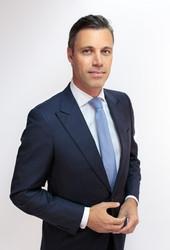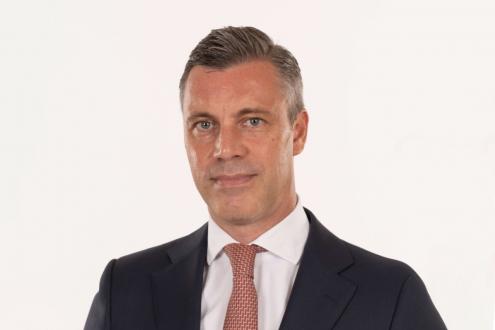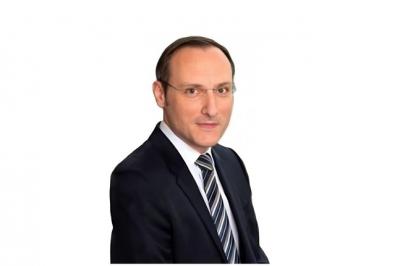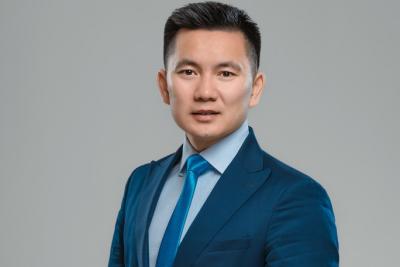The Delicate Art of Balancing Technology, Strategy and Human Advisory in Wealth Management

Mar 28, 2023
As private and institutional clients continue to demand greater technology, service, and ease of access, investment and wealth managers are under pressure to advance all aspects of the client journey and experience. Optimised digital client communications are front and centre of outstanding client engagement, and a truly seamless and pleasant client experience. In Asia, there is great optimism about future growth of economies, markets and private wealth. But while some competitors in the wealth industry will enjoy the fruits, it is also likely that those banks and firms that do not adopt the right technologies, protocols and approaches – or adopt them too slowly - could also be left behind. Hubbis held a virtual event on March 9 during which Harmen Overdijk, Chief Investment Officer of Leo Wealth and for some years a trusted source of insights on the independent wealth management model in Asia and beyond, was one of the panel of experts. He believes that private banks and independent wealth firms need to have a clear strategy for digital transformation, and to properly serve the HNW community, they need to balance smart digital transformation and client engagement with a refined personal approach through RMs and advisors. He says there is more work to be done in leveraging client and other data, and in anticipating client needs, almost before they might realise those requirements themselves. Hubbis has summarised his views from the discussion in this short review.
Harmen is both a great believer in, and a fine exponent of, the art of communication and transparency. He observed that while digitalisation is important, communication is the key to all their efforts and outcomes in wealth management.
“We always emphasise with anyone in our team and whatever their role, how client communication is the number one priority,” he explained. “While we are growing our client base across Asia and nowadays in the US as well, we must manage communication efficiently, and appropriately. We must also strive to make communications as personal as possible, unique to each client’s situation and needs.”
By way of background, Leo Wealth is a Hong Kong based asset management firm that focuses on the fee-based asset management model. The firm in its current guise was created from the August 2021 strategic merger of a US-based multi-family office and The Capital Company, the Hong Kong-based IAM, which Harmen had originally founded in February 2017.
In past interviews with him, he has explained that the deal was an ideal fit because The Capital Company, as an independent firm, had focused on offering global and Asia-specific investment advisory and related services to wealthy international investors, with robust connectivity and expertise linking Asia and the US. And the US merger has brought additional AUM, additional focus on the US, and a strong inclination towards alternative assets, where the US firm has a particular expertise and track record.
Today, the firm has AUM of around USD4.5 billion and Harmen has told us that the enlarged group is now even better at providing a broad range of value-added services in terms of helping clients and families build and protect their asset portfolios and, therefore, a stronger competitive position competing against the private banks and other providers. And all of these factors, he has told us, are also helping the firm expand their wealth management offering and expertise.
Harmen told guests at the March 9 event how technology and digital solutions have been advancing apace, and even though not as large as a private bank, for example, they do have their six global offices, they have significant client numbers and scale, and these factors combined with their ambitions had meant that they realised the need for one global integrated technology system.
“We have legacy technology we had built diligently up covering all sorts of needs, including financial planning software, portfolio management software, reporting software, the CRM systems, and so forth, we felt it was time to consolidate and replace all that completely with one global integrated system,” he told guests. “Most private banks have grown in the same way as us, adding offices, making acquisitions, and at the same time accumulating disparate technologies.”
He said it them takes both imagination and strategy – as well as significant investment - to take the leap to achieve the technology goals the firms and the clients need for the future.
Harmen then offered his perspectives on what the independent wealth sector can do to improve its proposition and its client centricity, especially around digitalisation.
He said there is a very fine line between leveraging technology to make the wealth management offering more relevant and personal and actually making it less personal, and also at the same time making it relatively easier for clients to move to another digitally-enhanced, or digital-first platform.
“We need to balance digital engagement and the individual touch and advice,” he explained. “In practice, if you make it too digital, you make it less personable, and make it a lot easier for your clients to walk out of the door and switch to try something else that looks a little shinier and more modern.”
He said if you want to explore a digital strategy or objectives around client enhancement, you need to be really clear what your business model is.
“Growth in AUM is ultimately the most important element, but to achieve that you must be clear that you are what you say you are,” he stated. “Many firms and banks might claim to be the trusted advisor, but in reality, are effectively investment brokers and not really trusted advisors. They don't really provide tax advice or proper estate planning or international movement support; they do not provide the holistic approach that wealthy clients truly require.”
He also called for better use of data on clients and better use of technology to track client activity, arguing that if properly managed, the firms can become considerably more efficient in many ways.
“Whether it is investments or helping clients to navigate the implications of divorces or helping them with robust financial planning when moving themselves or their family to another country, we see very different engagement of people actually reading emails or web pages we send them,” he elaborated. “If you really want enhanced client experience, it's actually bringing to your clients what they need before they almost realise they need it. And I think that is where this industry can still make a big step forward.”

Chief Investment Officer at Leo Wealth
More from Harmen Overdijk, Leo Wealth
Leo Wealth’s CIO on Evolving the Ideologies Around Curating Investment Offerings for Private Clients
Latest Articles






